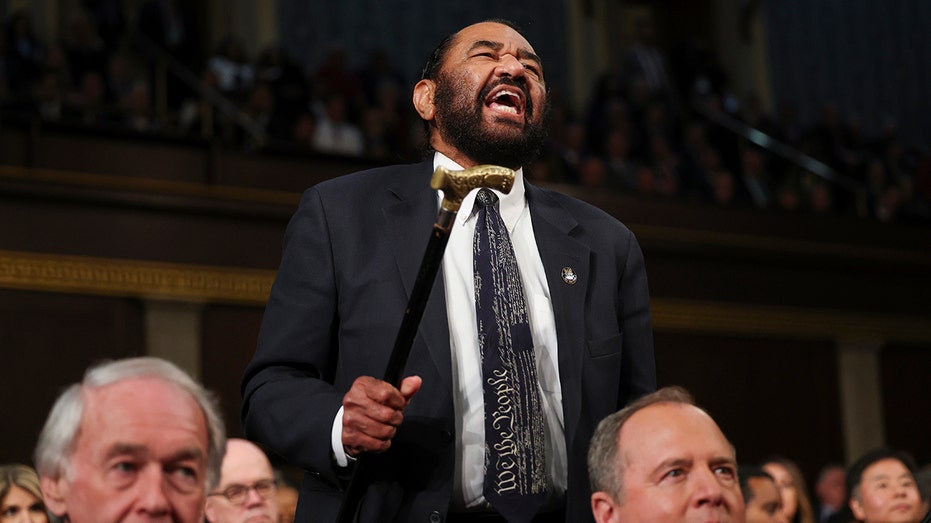Censure Resolutions: When to Double Down, and When to Turn the Page

Sarah Johnson
March 7, 2025
Brief
House censures Rep. Al Green become political theater as Democrats protest, shifting congressional discipline from solemn accountability to partisan spectacle. Speaker Mike Johnson faces escalating tensions.
Censure resolutions in the House of Representatives have become more theatrical than disciplinary. The latest chapter in this ongoing saga unfolded on Thursday morning when Rep. Al Green, D-Texas, was formally censured by Speaker Mike Johnson, R-La., for disrupting President Donald Trump’s speech to Congress earlier in the week. But the procedural chastisement turned into an unexpected spectacle.
Though Green was required to stand in the well of the House as Johnson read the resolution aloud and banged the gavel, a crowd of Democrats joined him to sing "We Shall Overcome," drowning out the Speaker’s reprimand. The scene may have diluted the intended impact, but it certainly made for memorable political theater.
This incident echoes a trend where censured lawmakers rally their allies to turn what should be a solemn moment into a defiant display. Rep. Tim Burchett, R-Tenn., suggested escalating the consequences for Green, including expulsion, while Rep. Andy Ogles, R-Tenn., pushed for stripping committee assignments from the Democrats who joined Green in his protest. It’s clear that congressional discipline has shifted from quiet accountability to loud, partisan warfare.
For historical context, Green's censure marks a sharp departure from the somber tone of past censures. Take the 2010 censure of former Rep. Charlie Rangel, D-N.Y., whose abuse of office led to a solemn moment in the House. Speaker Nancy Pelosi read his censure resolution with such hesitation and meekness that it felt like a personal loss. The entire chamber sat in silence, underscoring the gravity of the situation.
Compare that to today’s censures, like those of Adam Schiff, Jamaal Bowman, and Rashida Tlaib in recent years, which have been loud, chaotic, and politically charged affairs. Gone are the days when censures demanded solemn reflection; now, it’s all about who can shout the loudest.
The trend of disruptions during presidential speeches is another layer to this evolving dynamic. From Joe Wilson’s infamous "You lie!" outburst aimed at President Obama in 2009 to recent jeers directed at President Biden, decorum in the House chamber seems increasingly optional. And with each incident, the partisan divide only deepens.
So, what’s next for Speaker Mike Johnson? He faces a choice: pursue further discipline for Green and his supporters or heed Barbara Lee’s advice from years ago to "turn the page." Given the current political climate, turning the page might feel like wishful thinking, as both sides seem intent on escalating these confrontations.
One thing is certain: Congress has strayed far from its roots of mutual respect and civil discourse. Whether Johnson chooses to double down or move on, the House seems destined for more of the same—low-grade guerrilla warfare disguised as governance.
Topics
Editor's Comments
The theatrics of Green’s censure and the Democrats’ protest were undeniably dramatic, but it’s hard not to wonder if these moments do more harm than good. Turning a disciplinary act into a spectacle only further erodes the seriousness of congressional accountability. Maybe Congress needs a refresher course on what 'decorum' actually means.
Like this article? Share it with your friends!
If you find this article interesting, feel free to share it with your friends!
Thank you for your support! Sharing is the greatest encouragement for us.



